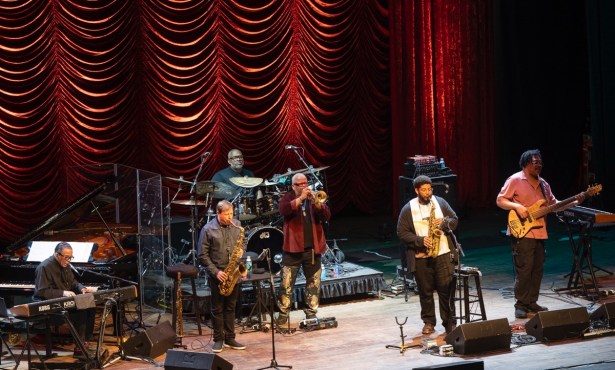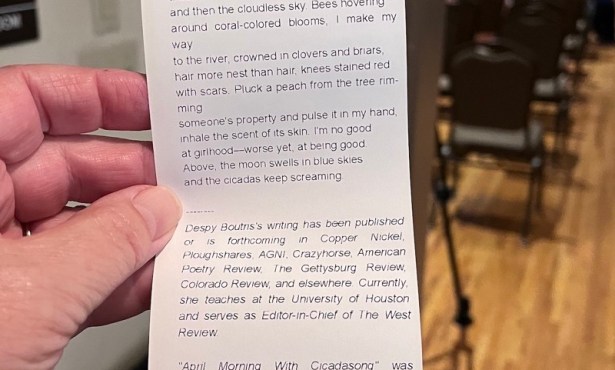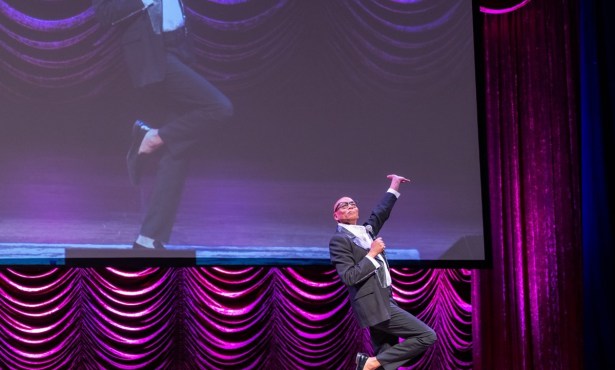UCSB Opera Theatre Presents ‘The Marriage of Figaro’
Students Take On Mozart’s Beloved Piece
Ah, the opera, the opera. There’s nothing like dressing in your finest for an evening or afternoon of high drama, hilarious comedy, and raw emotion set to a beautiful score performed by a live orchestra. A perfect opera-tunity to indulge in your operatic desires is this weekend, with UCSB Opera Theatre’s production of Mozart’s beloved The Marriage of Figaro. With a plot full of romance and foiled advances, characters deceiving one another to the delight of the audience, and beautiful arias that have solidified the piece as a cornerstone of the operatic repertoire, the performance will feature graduate and undergraduate students accompanied by players of the UCSB Chamber Orchestra.
Experienced soprano Isabel Bayrakdarian, assistant professor of voice at UCSB, serves as the stage director of this production, and shared her perspective on the upcoming performance, opera today, and her own experiences on the stage.
Why did UCSB Opera Theatre choose to produce Mozart’s famous The Marriage of Figaro? When mounting opera productions, first and foremost on the priority list is choosing operas that will allow the students to grow artistically and to develop essential stage skills. In this production, all the stars aligned beautifully so that the principal roles are all being sung by our own UCSB Voice graduate students, complemented by undergraduate singers from the Bachelor of Music and Bachelor of the Arts programs. The student instrumentalists also have the added advantage of being mentored by Kostis Protopapas, the artistic and general director of Opera Santa Barbara. This project is truly a symbiotic collaboration with so many local Santa Barbara artistic forces.
I am particularly fond of this opera, since I sang the role of Susanna at some of the best opera houses in the world, including the Metropolitan Opera, Royal Opera House Covent Garden, Paris Opera, Los Angeles Opera, Munich Opera, and more. I have been in many different productions, from the conservative 18th-century period visions to very modern, sometimes bizarre productions. I’ve always found that this opera triumphs because the genius of Mozart — combined with the equally genius libretto of Lorenzo da Ponte, based on the Beaumarchais triptych plays — makes it all very relatable to us today. The world may have changed since Mozart’s time, but human emotions and our reactions to circumstance have stayed the same: We still have pain from affairs, infidelity in marriages, treason, bribery in judicial matters, sexual harassment, age discrimination, and yet there’s still forgiveness, unconditional love, laughter, and music to redeem it all.
What do you hope the students who are a part of this production will take away from the experience? Marriage of Figaro is one of the most frequently performed operas in the repertory of opera houses. The UCSB students singing this opera in the original Italian will not only have this valuable performance experience on their resumes, but they will have a better chance at being cast in the real world of professional opera companies, since they have now developed the stamina, technical skills, memory, language proficiency, character analysis, and most importantly, a live performance experience in front of an audience.
Opera today has a very specific niche in society. Why should someone attend an operatic production? Opera is one of the few performing art forms that combine so many creative artistic outlets in on place. The team includes singers, sometimes dancers, and various instrumentalists playing in the orchestra pit with a conductor keeping it all together onstage. Behind the scenes, there are conceptual artists creating the set design, costume design, lighting design, hair-makeup looks, and much more. Attending an opera is always a visceral experience. It’s like space travel: It can transport you to a different place and time, on the wings of music. When the opera plot is relatable, then timelines disappear and 18th century melts into 21st century. Opera is also special, because when the human voice sings an expression, that emotion goes straight to the heart and soul of the listener, healing wounds and creating a sense of elation, joy, and inner peace.
With your experience as a performer, what makes opera so special? From my experience as a performer, there’s nothing more invigorating and therapeutic than singing the music of Mozart. To put it simply, the music is just perfect. You can’t add or take away anything from it. It should flow naturally from the singer. And if singing it feels strenuous, then often there’s a technique issue that needs to be addressed and resolved. Mozart loved life, and by extension, his music also embodies all the authentic human emotions and experiences. All a singer has to do is tap into their own truth and authentic self and just be a conduit for the genius and the inspiration that birthed this music.
What should people expect from this production by UCSB Opera Theatre? This production by UCSB Opera Theatre is beautiful with period costumes, transporting the audience to a different time. There’s laughter, suspense, intrigue, deception, and some feminism thrown in as well. I’m incredibly proud of the students and their artistic growth! It promises to be a great show.
4·1·1
UCSB’s Opera Theatre program presents Mozart’s The Marriage of Figaro on Thursday, February 8, and Saturday, February 10, 7:30 p.m., at Lotte Lehmann Concert Hall, UCSB. Call (805) 893-2061 or see music.ucsb.edu.



